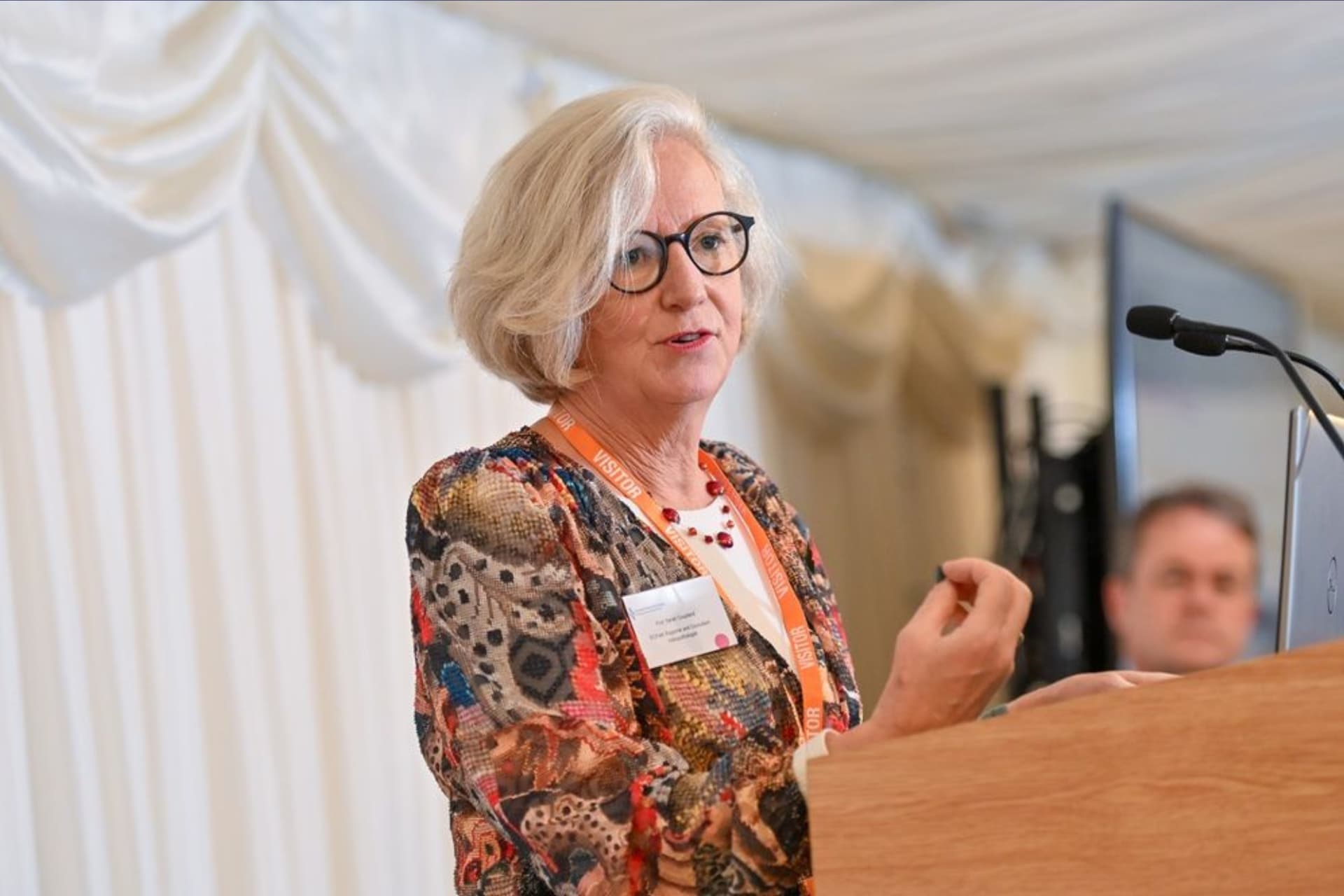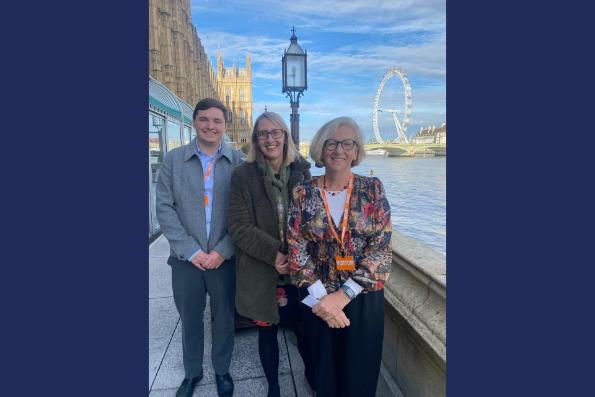
Professor Sarah Coupland recently spoke in the Terrace Pavillion in the House of Commons for the ‘Pathology Solutions’ event organised by the Royal College of Pathologists (RCPath).
The event, held during National Pathology Week, was sponsored by Simon Opher MP, a practicing GP, and offered a unique opportunity to highlight how pathology services are at the forefront of the UK's health system, and how pivotal they are for the successful implementation of the NHS 10-year Health Plan.
Over 200 delegates, including representatives from industry, government, research, health charities and think-tanks, were able to attend the talks at this event. They were able to speak with a wide range of experts working in the prevention, diagnosis, and treatment of diseases such as cancer, diabetes, inherited diseases, and infections.
Professor Coupland’s speech outlined the Digitisation of Pathology, it being a crucial component of one of the ‘three shifts’ in the NHS 10-year plan. Along with colleagues Dr Helen Kalirai and Max Johnson (PhD student) from her research group, the Liverpool Ocular Oncology Research Group (LOORG), she also showcased the Eye Cancer Artificial Intelligence Digital Bioresource (EYE-CAN-AID). This Trusted Research Environment aims to improve the early detection of rare eye cancers in the UK, integrating clinical, radiological, histological, and genetic data of consented patients. By using AI-driven analysis, researchers will develop better diagnostic tools, ensuring faster, more precise, and personalised treatments.

Professor Sarah Coupland said: “It was a fantastic and hugely successful event, with a great turnout and lots of conversations and networking amongst the diagnostics community and policy makers. It provided RCPath the opportunity to highlight the importance of pathology in all 3 planned ‘shifts’ in NHSE, and the absolute need for better join-up of path data (in all its forms) between the community hubs and secondary/tertiary care, in diagnostics, screening and monitoring of patients. Our EYE-CAN-AID stand was just one of many examples presented on the day, of how the NHS can closely interact with academia and Industry, to improve patient care."